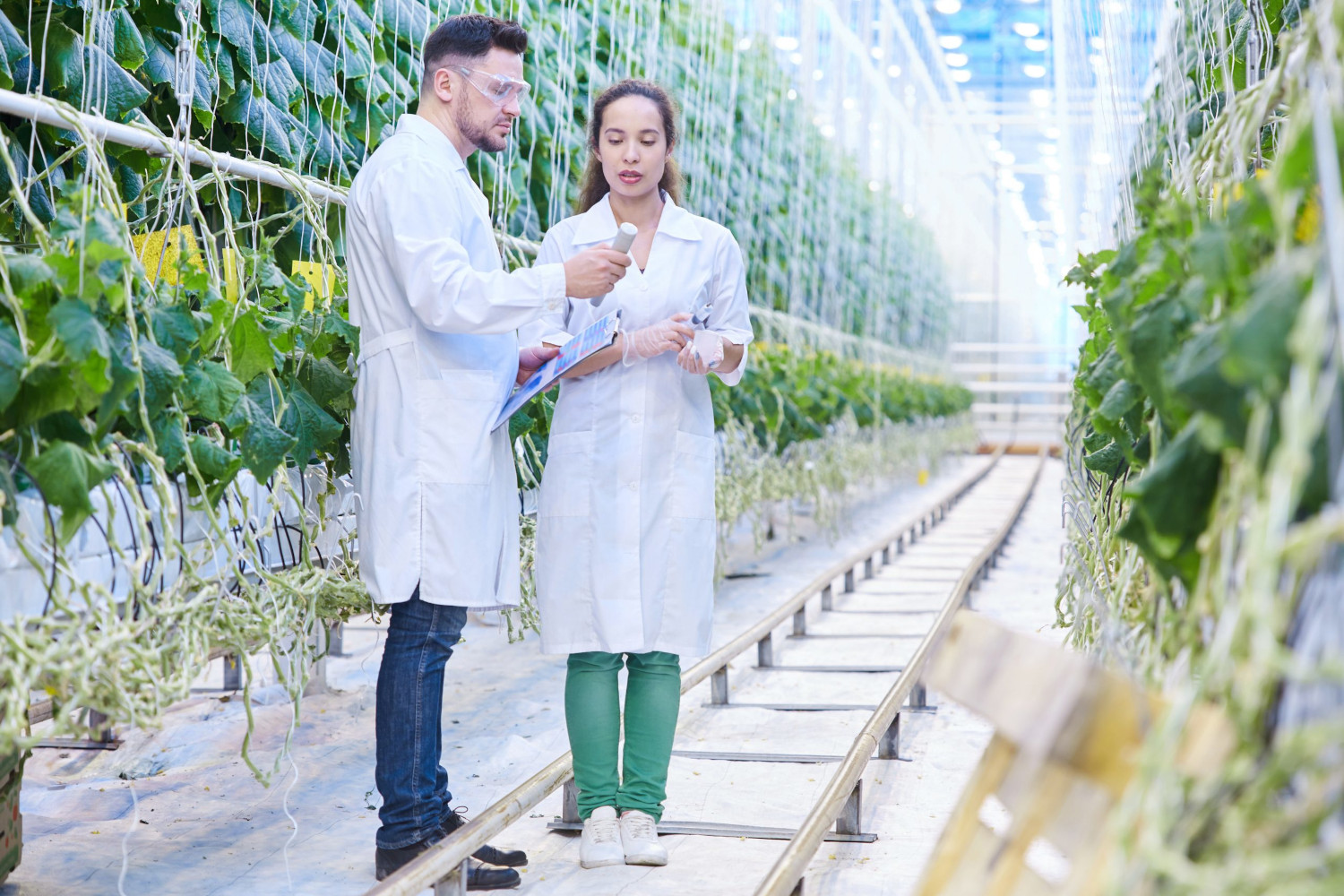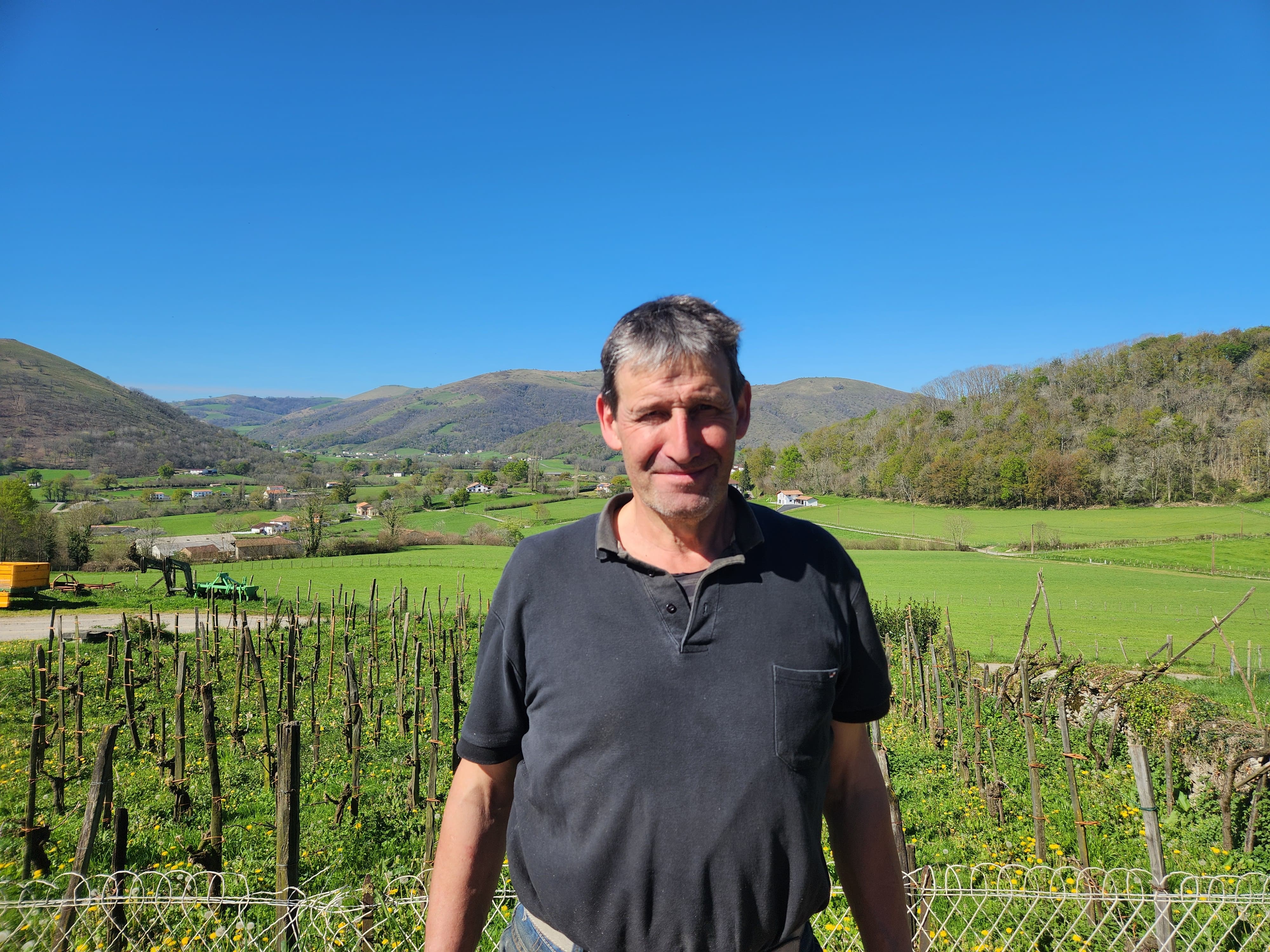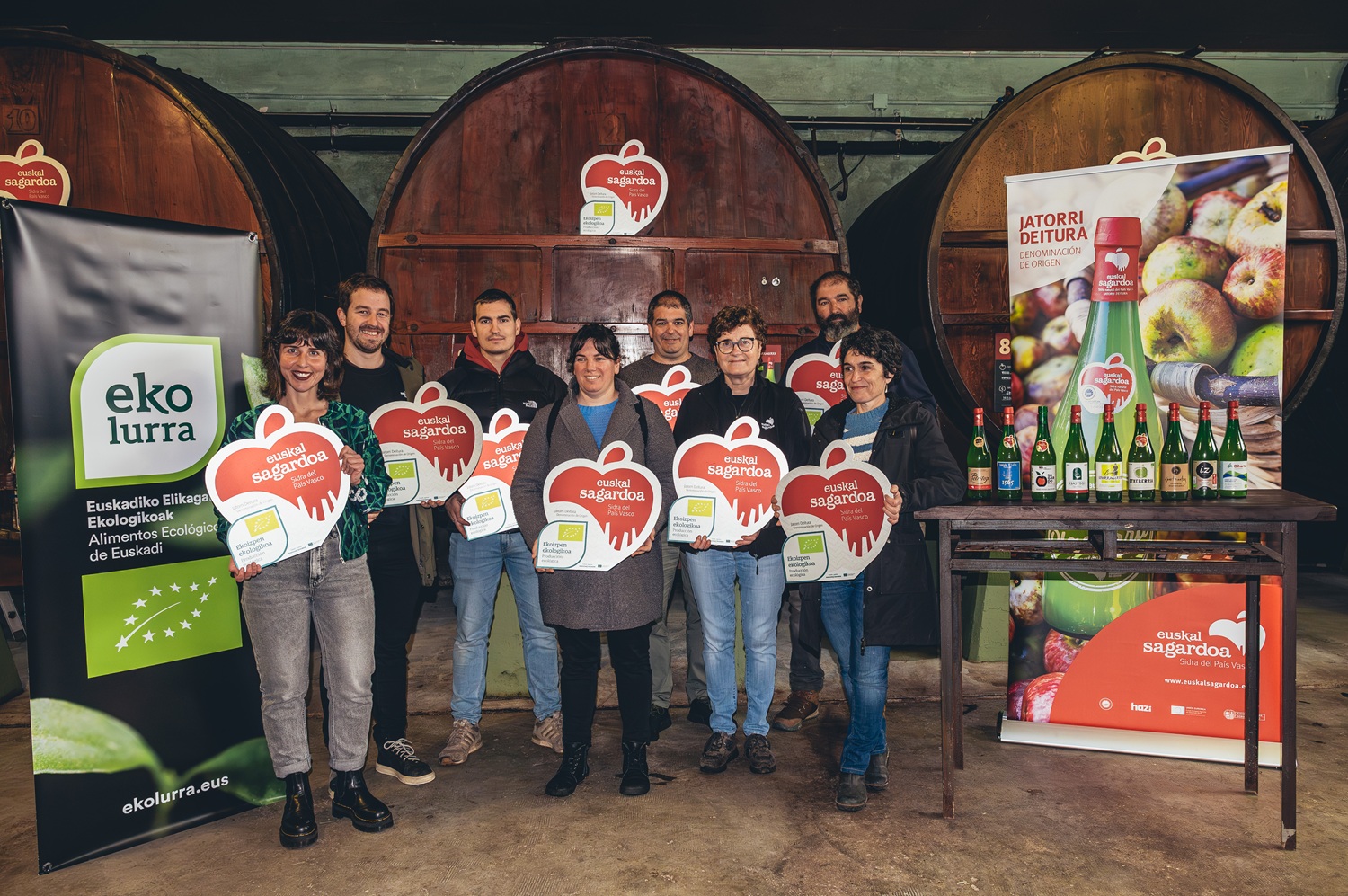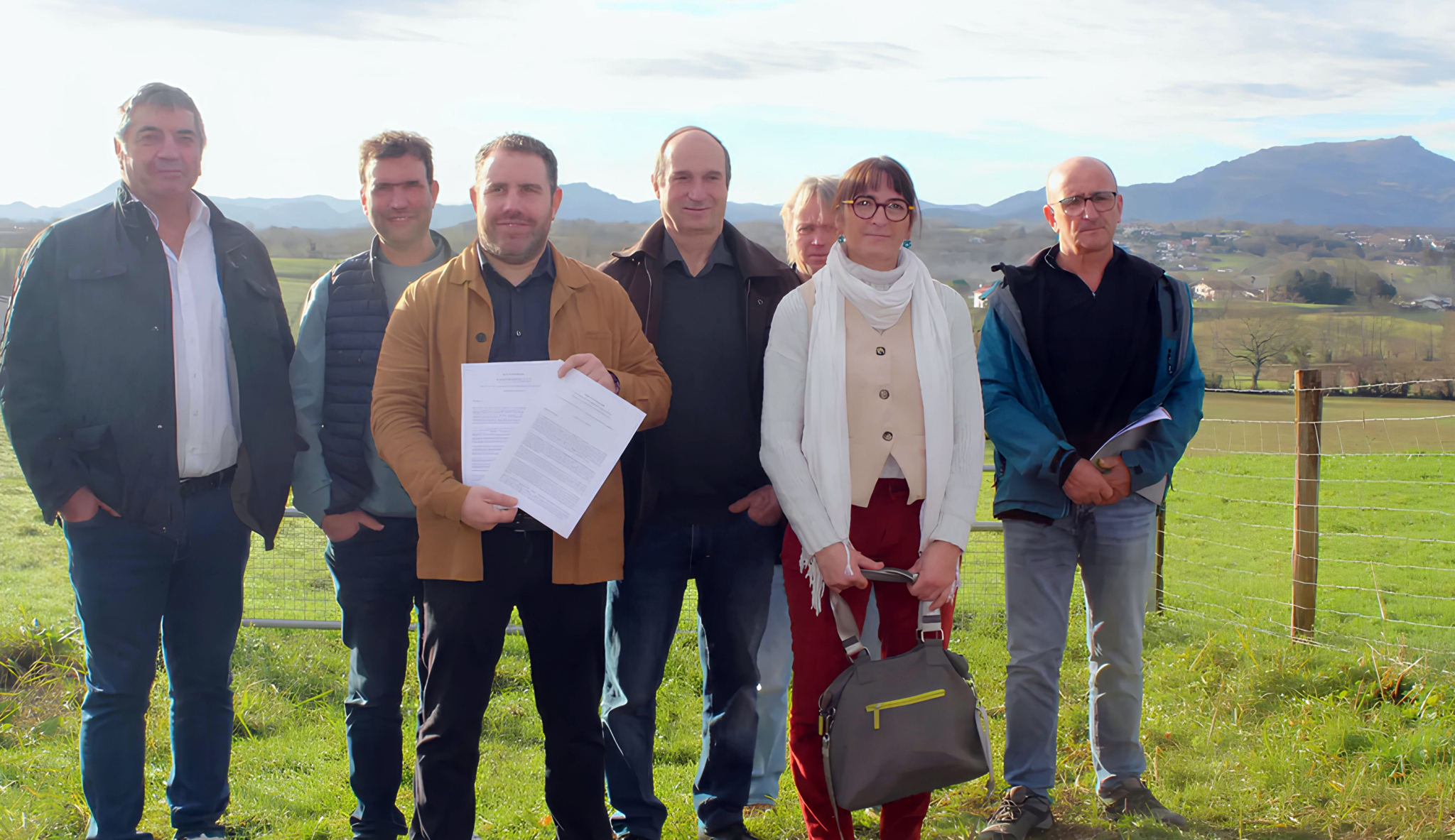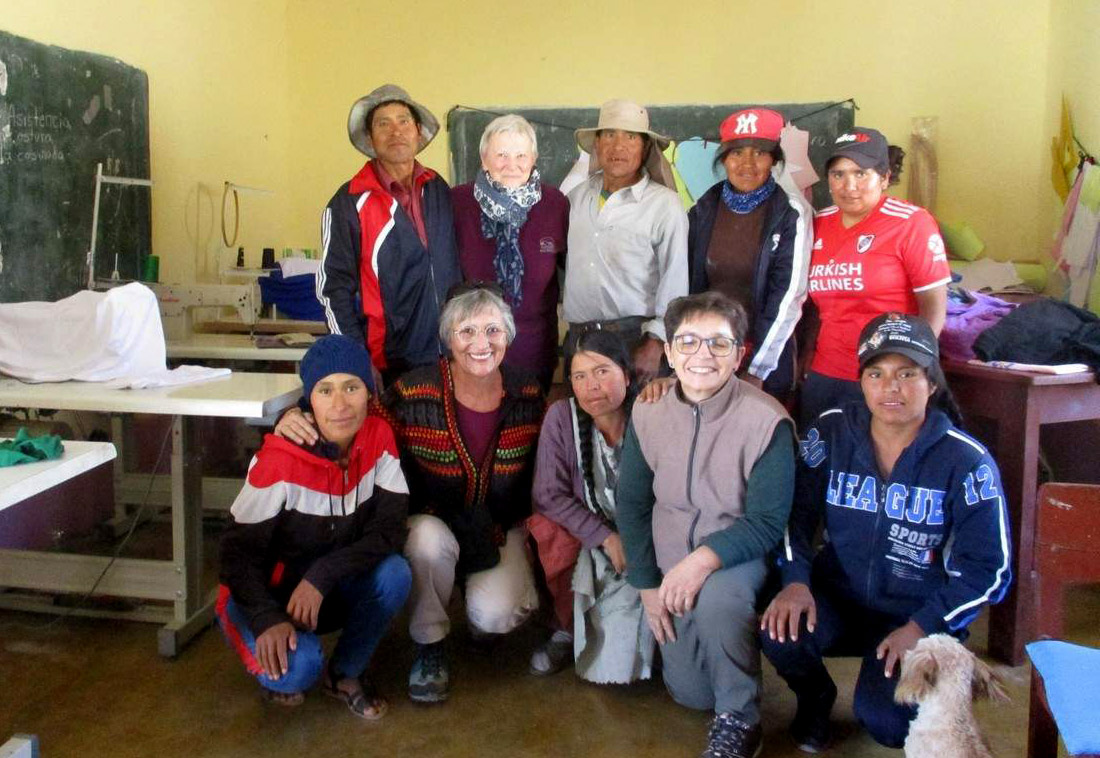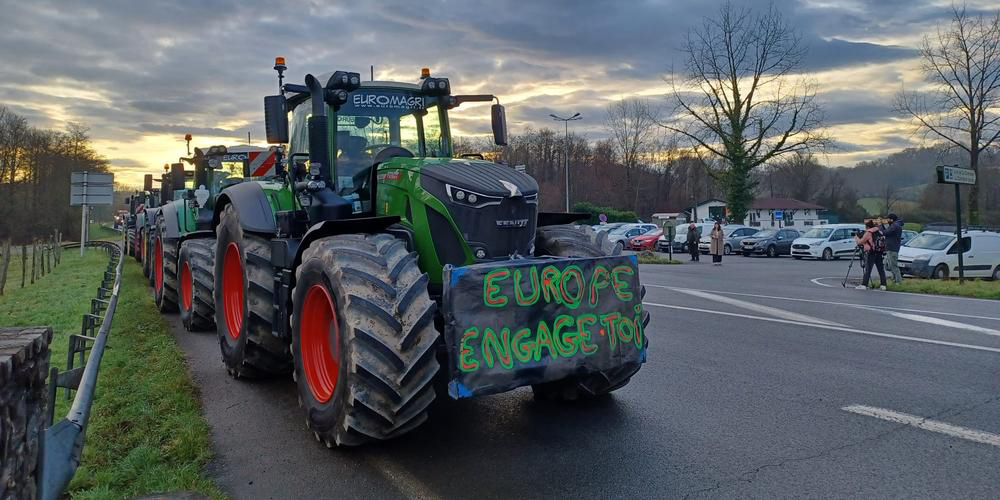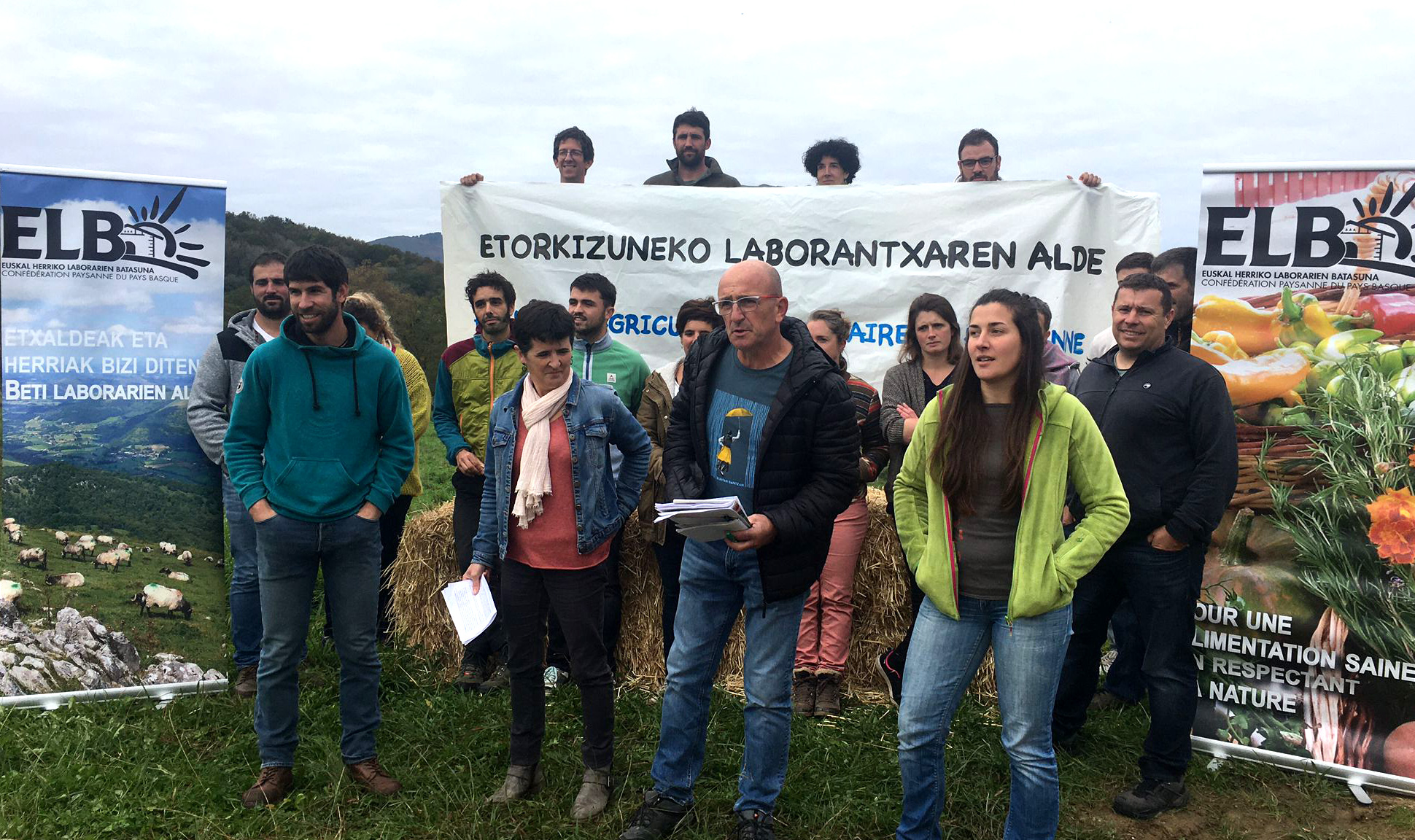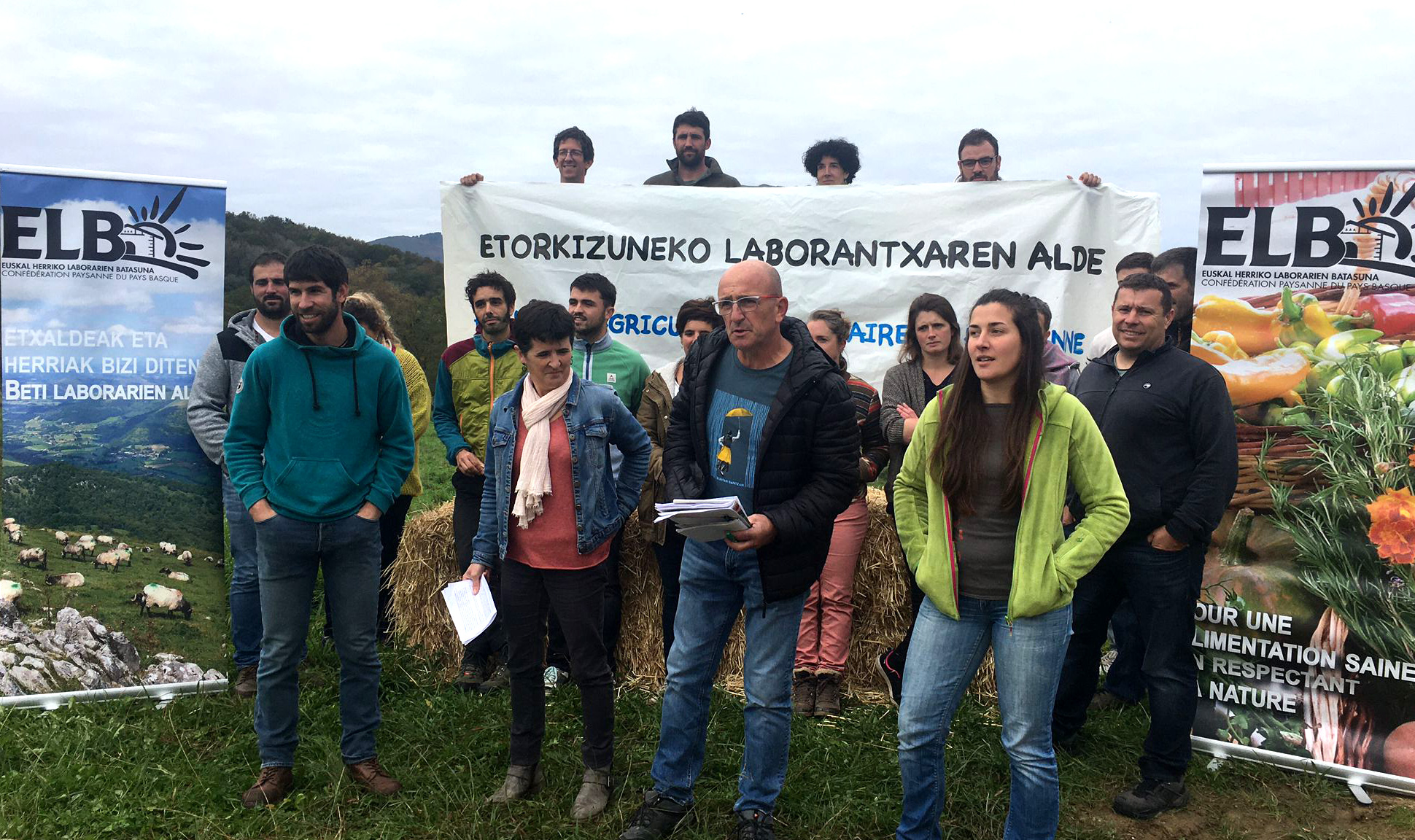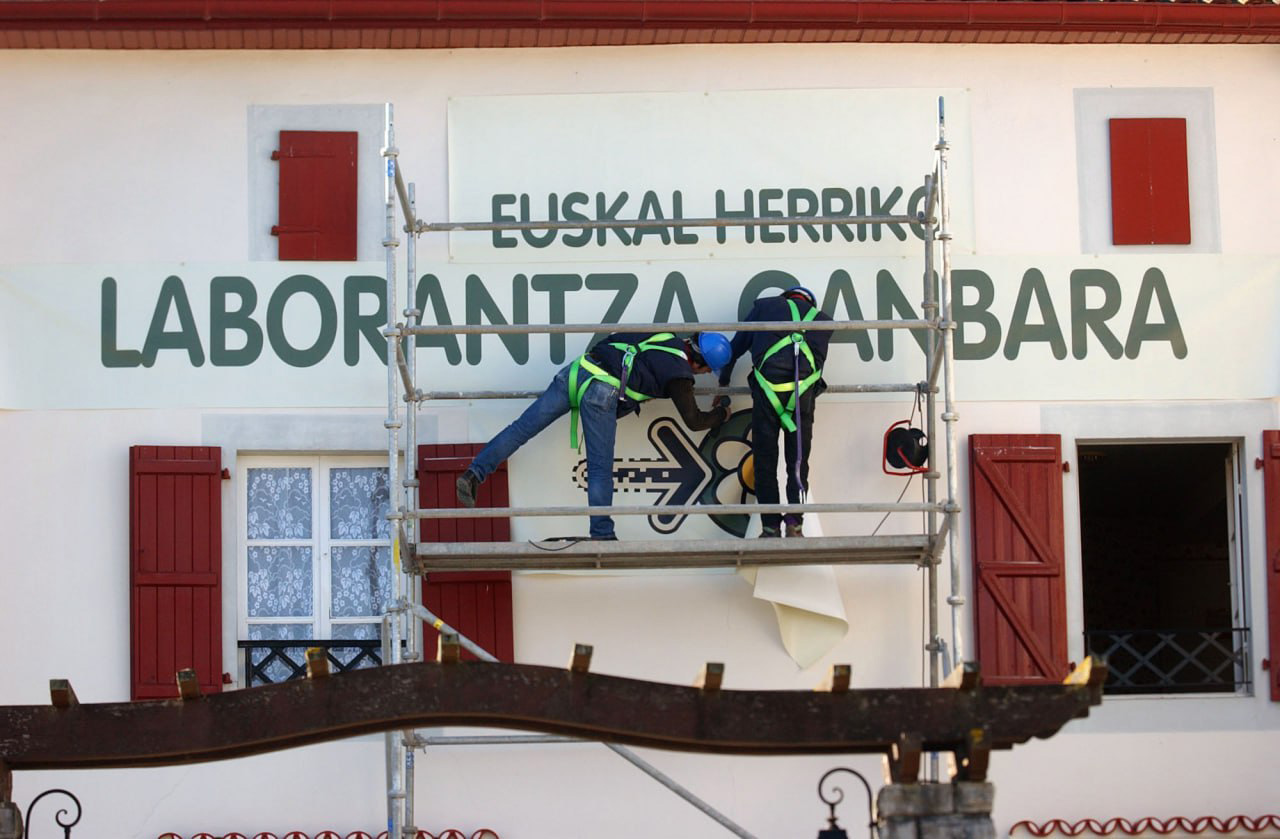Food sovereignty is fashionable, not millions of invisible peasants
- From 24th to 26th of April, members of baserritarras, university and social movements arrived from all over the world to the Europe Center of Vitoria-Gasteiz for the Nutrition 21 congress. The future of food and the challenges of agriculture for the 21st century were analyzed. At the heart of the debates, food sovereignty: a concept created in 1996 by the Via Campesina of small farmers, which the right would like to assume after the crisis of the twenty-first century.
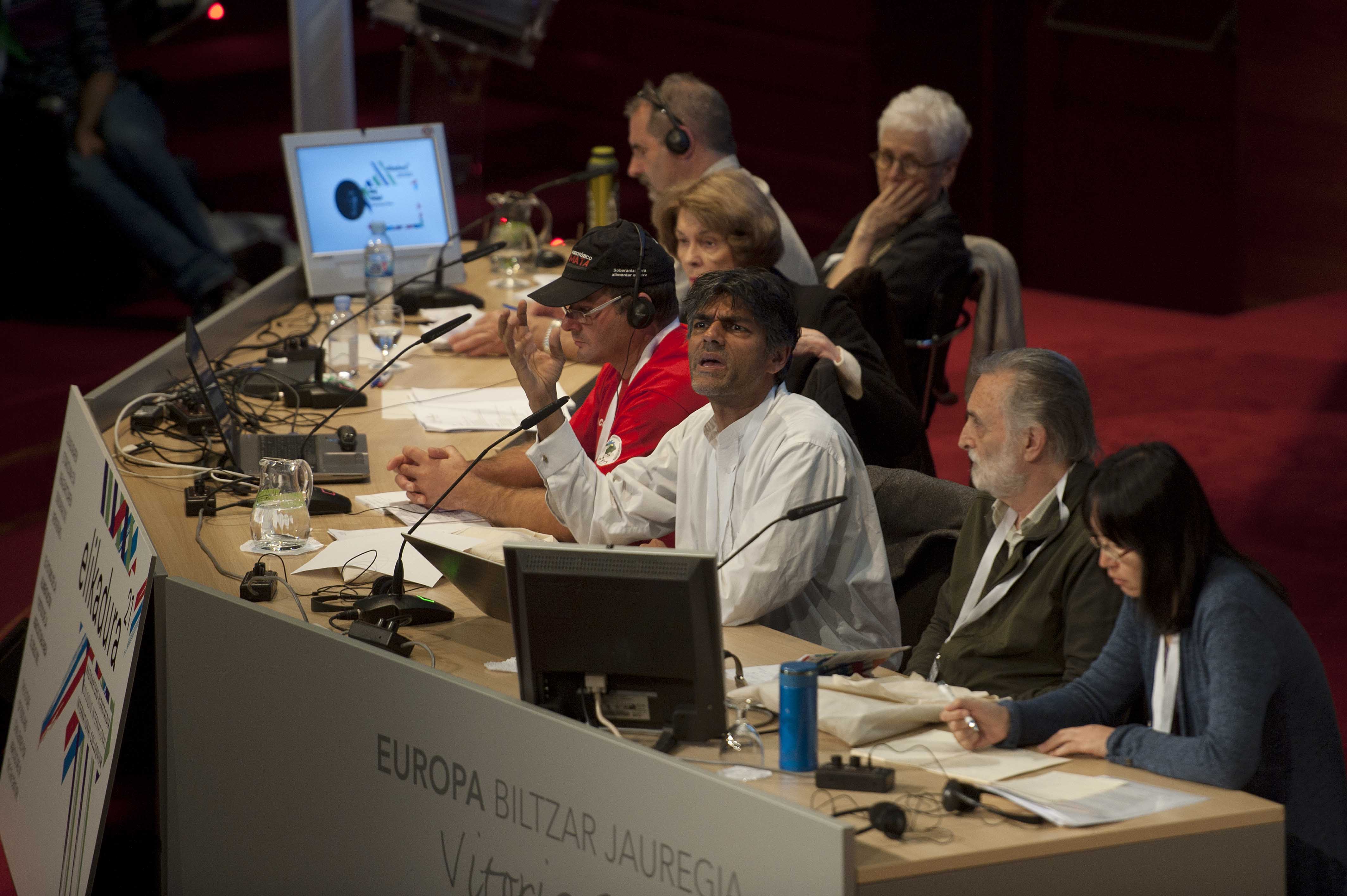
If we look at the organizers of Nutrition 21 of Vitoria-Gasteiz, on the one hand there is the Etxalde movement, linked to EHNE Bizkaia and through it to the Via Campesina worldwide, and on the other there is the ISS Institute for Social Studies of The Hague, which promotes the Institute for Critical Agricultural Research ICAS.
With the aim of highlighting one of the public institutions, foundations and NGOs that appear among their collaborators, the Transnational Institute, which has among its leaders Susan George, a woman well known in her research and struggles on neoliberal globalization: He who read the English communiqué in the celebration of popular disarmament in Baiona also opened the Vitoria-Gasteiz Congress.
Under the title The Future of Food and the Challenges of Agriculture for the 21st Century, the program had six large blocks. Capitalism, class, agriculture, livestock and fisheries. Climate change and convergences. Development models in the context of capital flows, goods and people. Accessibility and control of means of production. Consumption, health, nutrition and the right to food. And the movements towards food sovereignty.
Since the first day of Congress, many members have highlighted the need to free themselves from neoliberal “food sovereignty”. Veteran professor and militant Anette Desmarais, from the University of Manitoba (Canada), told how in 1996 they created and disseminated the concept of Vía Campesina. Since then, food sovereignty has been integrated into all social movements, it has been mentioned and internalized in its resistance models, and the academic world has offered it a wide bibliography with numerous studies.
Pulling the same thread later extended ‘Energy Sovereignty’, ‘Seed Sovereignty’ and others, creating new themes and integrating into the old ones. “In the end, food sovereignty has become a paradigm,” Desmarais said. “This idea, created by farmers, has also gained prominence when the consequences of climate change have been exposed to everybody’s eyes.”
Now, however, success has become a danger to the innovative idea. For Asian English Professor Raj Patel, any nationalist leader who today commands in India unites food sovereignty with the intention of turning India – or France in the case of Le Pen, as well as Trump’s America – into “a great country.” In the wake of the economic crisis, the wounds of globalisation on people once again prevail in nationalism and protectionism. Even with food sovereignty, neoliberals are able to adopt and use a concept that is contrary to their logic, to manipulate, to better hide what happens in capitalist markets in the eyes of citizens.
The Basque Paul Nicholson, one of the referential leaders of Vía Campesina, wanted to make it clear that food sovereignty is a right of peoples, not to give control of the markets of a people to its powerful elites. And secondly, it is a right for all peoples, not to protect the local market from imports in the name of food sovereignty and, at the same time, to promote agro-exports to drown small baserritars in neighbouring countries.
So many, so invisible
Mixel Berhokoirigoin, one of the most well-known Basque farmers, was going to be in the opening session of the congress. However, he was unable to approach Vitoria-Gasteiz because, in exchange for his work in the popular disarmament movement of ETA, a judge in Paris prevented him from leaving France.
In his video speech, Berhoko summed up in his famous didactic style the essence of food sovereignty, putting the imagination of the listeners to work. “We can map the world by explaining where people are hungry and where people are well satisfied. Then we'll make another map by classifying our planet's lands according to their fertility, better and worse. You might think that the two maps should be similar, that the undernourished people should live in the regions where the worst lands are. But this is not the case most of the time, in places where there are better lands, people live hungry.”
This and other dysfunctions of the current food system, why does Europe have extra milk and sheepmeat?, have to do directly with political decisions and planning, and they are the ones who are trying to change the farmers who bring together Via Campesina.
Berhokoirigoin also gave a series of questions to those fighting in agroecology and local agriculture. How do we feed these people who are living more and more in the world in big cities and in mega-cities? Besides agroecology, how to organize agro-industry and agro-distribution to satisfy megapolies? In the price of products, how can we combine being dignified for farmers and at the same time affordable for non-rich citizens? And how to organize relationships with new techniques and technologies?
But the peasants of the world have a serious problem: despite having billions and working to satisfy the hunger of the rest of the world, they are invisible. They've made them invisible. Many of the oldest and most current features of this invisibility have been heard in Congress. The small Brazilian farmer Valter Israel da Silva graphically showed how the administrations also organize statistics so that most of the farmers' activity does not appear anywhere, even if they are not linked to agro-industry, which are the ones who most work to feed the world.
In part, Vía Campesina has regained the visibility of peasants thanks to the alliances of decades around food sovereignty: With NGOs, social movements, academia, unions... But neoliberal capitalism is also more offensive than ever before against small farmers, after controlling markets, fertilizers and seeds, it is now intended to take the territory away from the citizens and, in particular, the peasants. As Professor Peter Rosset has said, in the new capital offensive the territory as a whole is at stake, including land, people, water, seeds and history.
Examples were heard in Vitoria-Gasteiz from China, from India, from Bizkaia, from all corners; and all of them were related to the climate crisis, food, the economic crisis, public and private indebtedness, consumption, repression, expropriation. Fears and expectations, Monsanto and Cultivation Zero Budget.
Euskal Herriko Laborantza Ganberak hogei urte bete ditu. 2005ean sorturik, bataila anitzetatik pasa da Ainiza-Monjoloseko erakundea. Epaiketak, sustengu kanpainak edota Lurramaren sortzea, gorabehera ainitz izan ditu hogei urtez.
Txotx denboraldian eredu ekologikoan ekoiztutako Euskal Sagardoaren eskaintza izango da hainbat sagardotegitan, eta hura bistaratzeko, Jatorri Deiturak eta ENEEK-Ekolurrak kupeletan paratzeko euskarria aurkeztu dute.
Lurraren alde borrokan dabilen orok begi onez hartu du Frantziako Legebiltzarrak laborantza lurren babesteko lege-proposamenaren alde bozkatu izana. Peio Dufau diputatu abertzaleak aurkezturiko testua da, eta politikoa eta sentimentala juntaturik, hemizikloan Arbonako okupazioa,... [+]
203 diputatu alde eta hiru aurka agertu dira martxoaren 11 gauean egin bozketan. Higiezinen agentziak haserre agertu dira, eta bi salaketa aurkeztu ditu FAIN Frantziako Higiezinen Federazio Nazionalak Europako Batzordean. Bata, lege-proposamenari esker botere gehiago jasoko... [+]
Laborantzaren Orientazio Legea pasa den astean ofizialki onartu du Frantziako Parlamentuak. Ostegunean Senatutik pasa da azken aldikoz. Iazko laborarien mobilizazioen ondotik, aldarrikapenei erantzuteko xedea du lege horrek. Aldiz, ingurumenaren aldeko elkarteek azkarki salatzen... [+]
Zubiak eraiki Xiberoa eta Boliviaren artean. Badu jadanik 16 urte Boliviaren aldeko elkartea sortu zela Xiberoan. Azken urteetan, La Paz hiriko El Alto auzoko eskola bat, emazteen etxe baten sortzea, dendarien dinamikak edota tokiko irrati bat sustengatu dituzte.
Datorren astean Departamenduko Laborantza Ganbarako hauteskundeak ospatuko dira Ipar Euskal Herrian. Frantzia mailako FDSEA eta CR sindikatuez gain, ELB Euskal Herriko Laborarien Batasuna aurkezten da, "euskal laborarien defentsa" bermatzeko.
Euskal Herriko Laborantza Ganbera elkartearen hogei urteak ospatu zituzten asteburuan Ainhize-Monjolosen. 2005eko urtarrilaren 15 hartan sortu zuten Lapurdi, Baxenabarre eta Zuberoako laborantzaren garapena –hori bai, iraunkorra eta herrikoia izan nahi duena–... [+]











